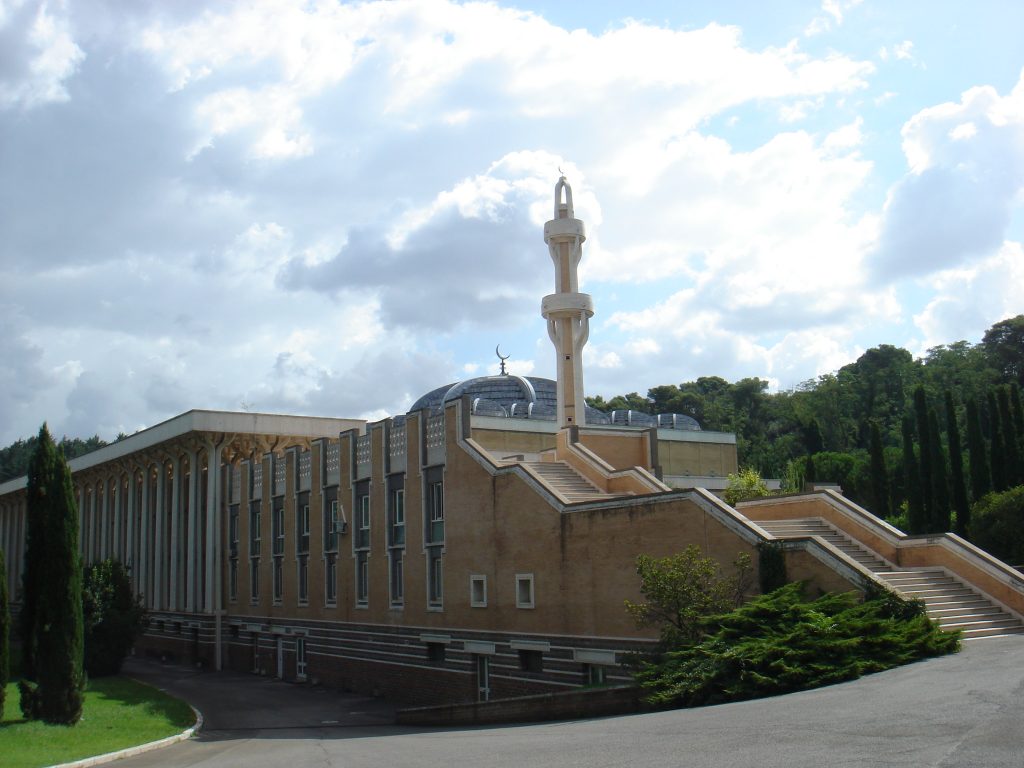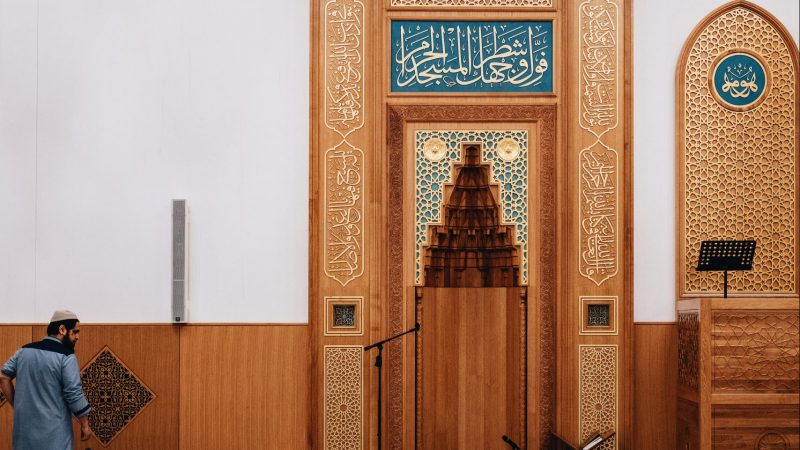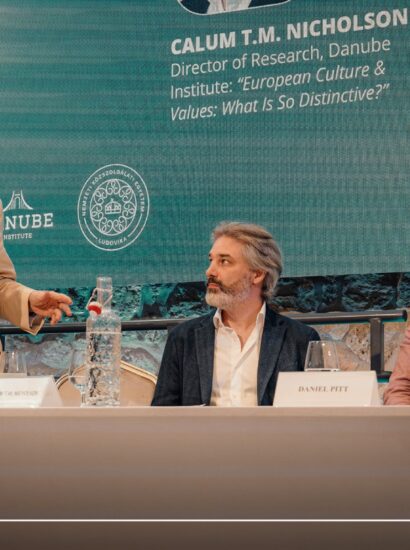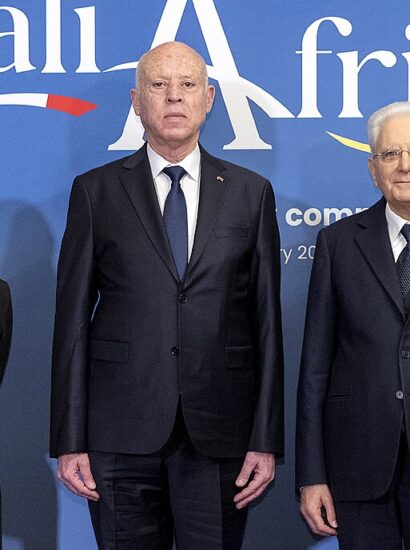A hit book of the 1990s was Samuel P. Huntigton’s Clash of Civilizations and the New World Order. Many considered the author’s claim that the end of the Cold War was not the end of history, as Francis Fukuyama’s theory predicted, but a clash of different religious and cultural civilizations to aggravate and even unnecessary scaremongering. Twenty-five years later, we see that the prediction has been confirmed: Europe has become a battleground between Islam and Western culture with Muslims in Europe choosing either to put up with European values or taking a more conservative, even fundamentalist route.
There are two opposing trends in the relationship between the indigenous European population and immigrant Muslims. The first, based on the clash of civilizations paradigm, essentially postulates a war between democratic Europe and its millions of Muslims imported from anti-democratic countries. The proponents of this position envisage a very ominous scenario, with the Islamization of Europe and the creation of Eurabia, a Muslim-majority caliphate.
On the other hand, Euro-Islam does not accept the former, as it does not consider the democratic Muslim immigrant masses who have already become Europeans and cannot be automatically classified as jihadists. The theory is that the front line is within the Muslim world, between Muslim fundamentalists and the moderates who oppose them. According to the theory’s adherents, European Muslims should not be seen as a homogeneous community, but as rival groups with very different individual motivations. The proponents of this movement express the hope that Europe can absorb and Europeanize this mass. One of its prominent proponents and theoretical founders is the Syrian-born German philosopher Bassam Tibi.
Quiet Islamization
How did we get here, is there a solution, or will Islam be the dominant religion on our continent in 50-100 years? The spread of Islam is the duty of all Muslims, so they call Muslim areas the land of Islam – dar al Islam – and the rest the land of war – dar al harb – which they believe must be conquered. Usually with weapons, but also with pens, speech and money. Today in Europe, we call this stealth Sharia or quiet Islamisation. It is a common misconception that Islam is a religion of peace. Since the meaning of the word is submission, it is indeed derived from the same verb as salaam (peace). In the Muslim worldview, Islamic peace comes when the whole world becomes Muslim. We have now reached the point where polygamy is practically accepted in some European countries. Sharia is allowed in certain community affairs, and in mosques in France, Britain and Germany, imams imported from the Middle East are free to preach their extreme doctrines. One sign of Europeans’ possible submission to Islam is the growing number of converts. Around a fifth of the Islamic State’s European jihadists are indigenous, typically from the old Christian middle class. According to a 2014 survey, almost a quarter of the 1,132 French jihadists registered at the time were white Muslim converts. As for the women, they mostly embrace the religion of Mohammad in the suburbs in the hope of escaping the constant harassment from Mohammad’s imported third-world followers
The apocalyptic vision however of a Muslim Europe is still a long way off.
The last reliable statistic made in 2017 puts the number of Muslims in Europe at just 5 percent of the overall population of the European Union (including Great Britain at the time), or 30 million. Of course, the proportions vary greatly from country to country, with Muslim communities being less than 1 percent in Central and Eastern European countries (in Hungary less than 0,5 percent) in particular, and between 5 percent and 10 percent in some Western European countries (France, Belgium, Germany). If we look not only at the EU, but also at Russia, which has a large Muslim minority, and the Balkan states, the same figure is only 6 percent. Perhaps more interesting, the question of population growth, which is not yet conspicuously high, and is even similar to the non-Muslim population. As to how the Islamic population will grow in Europe by 2050, the Pew Research Center outlined three different scenarios. If immigration with Islamic roots was to swamp up, the number of Muslims in Europe would increase by only 5 million. But it is more likely that by then there would be many more, around 58 million. In the event of extreme migration, this figure could rise to 76 million, or 14 percent of the total population.

Mosque of Rome, the biggest in the European Union (Photo: Wikimedia Commons)
According to the Washington Institute’s calculations quoted above, the UK will have the largest Muslim population in Europe in 2050 under the most likely scenario, i.e. at medium migration. It is estimated that 16.7 per cent of the UK population, or around 13 million people, will be Muslims by that time.
What is expected in the medium term is that Europe’s Muslim communities will become increasingly important players not only in demographic change but also in European politics.
The Islamic communities of Northern and Western Europe are home to 3-4 influential organizations, which are active in advocacy and have strong political networks. The most influential of these organizations is the Muslim Brotherhood, which has its roots in Egypt and has now developed into a global network.
The Brotherhood-affiliated organizations have also been active in lobbying EU institutions, such as the European Parliament, and have engaged in cooperation with various European associations, mainly on economic, social and human rights issues. It has become common practice for various associations to print and distribute brochures to members of the Muslim community. In these, they provide information on the voting process, offer help in registering and getting to the polling stations, and suggest which candidates they consider worthy of their support.
For candidates who have a significant proportion of Muslims in their constituency, working with the community is essential to winning.
In many Western countries, this is how the Muslim Brotherhood has been able to build a network of mutually committed relationships at both local and national levels. In the 2010s, a certain ideological and structural crisis was felt in several European countries, leading to a radical decline in the popularity of these parties among indigenous voters. Islamist parties are – for now – not dominant.
It is not surprising, then, that the Socialists and Social Democrats, as well as the Greens, who are part of the New Left, have traditionally been pro-immigration. On the one hand, these parties promise and make concessions that strengthen community autonomy, for example, by allowing certain elements of Sharia law or respecting the Muslim way of life; on the other hand, they dress politicians who claim to be moderate Muslims in party colors.
In the 2013 German federal elections, nearly 64 percent of voters of Turkish origin voted for the SPD, the Social Democratic Party of Germany. In the United Kingdom, the Labour Party has been trying to win over the Muslim vote since the early 1980s, it carried significant weight in some major cities such as Bradford, Leicester, Birmingham and some London boroughs. Under the Blair government, an umbrella organization, the Muslim Council of Britain, was established with government support. Labour leaders viewed the Council as a guarantor of immigrant votes and sought closer relations with it.
The End of Multiculturalism in Europe
In his book, British writer and publicist Douglas Murray argues that European multiculturalism is based on celebrating the host culture while focusing on the negative aspects of one’s own. The most welcoming countries were thus paradoxically branded as racist. Politicians can only talk about immigration in an optimistic narrative. When you find out that a terrorist worked in a fish and chip shop, you say, “But he’s integrated.” It was as if the buffet had infused him with British culture.
Murray also examines the new habit of self-hatred in the West: as he writes, it is only in the West that the tendency to identify with the most shameful events in our history has spread. Turks do not feel guilty about the Turkish campaigns in Europe or the Armenian genocide. Nor do Mongols feel guilty about the Mongol invasion. In contrast, Americans can take a sad tour of Africa or the Middle East because of the Crusades (!) or their slave-holding ancestors. Self-flagellation is also widespread in European countries, mainly because of colonialism – from this perspective, immigration can be managed by saying “the empire strikes back.”
The author asks the question: why is diversity good in itself? Does not Europe need to diversify its culture? Is European gastronomy not diverse enough? Even if the answer is yes (the truth is no), a hundred thousand immigrants from the Levant will not make gyros more diverse. And if diversity is so important, why are immigrants only from former colonies? And if there are great aspects of cultures, should it be concealed that there are difficulties and negatives – even in the culture of immigrants? After all, does it not matter that there is a bit more beheadings, higher crime rates and a lot of sexual violence by immigrants, because it is the price of great progress that we can enjoy their gastronomy?
The greatest danger in Islam is undoubtedly fundamentalism.
Fundamentalists who dress their political goals in religious garb are extremely popular with the common people. They want to create a purely Islamic state in which religious scholars hold power and follow the teachings of the Quran to the letter. Their ideal is an Islamic state, which promotes the use of religious language and symbols. They advocate the expansion of Muslim education in public schools and even establish schools themselves. They declare a holy war, a jihad, to spread the faith of Muhammad so that the rest of the world will have the image of Islam as violent intolerance.
Because they want to establish a theocratic state, they reject Western-style secular politics and the Western way of life in general.
In the recent documentary ‘I Was an ISIS Man’, one of the captured ex-Islamists responds to a question about why he believes the Muslim religion cannot be reconciled with the values of democracy. “A devout Islamist cannot accept that a man, let alone a woman, can live the way he wants. There are certain divine laws – such as Sharia – that dictate how we should live and the role of gender in the world. Anyone who does not want Allah, but the rule of men, is not a true Muslim.
Throughout Europe, we have been talking for some time about the failure of multiculturalism, of the multicultural model. In addition to the real lack of a solution to the situation of Muslim minorities and the social, economic, political and cultural problems and tensions that come with it, the strong actions and rhetoric of extremist anti-Muslim and xenophobic parties and organisations certainly play a role.
To illustrate how Europe is moving towards cultural self-sacrifice, there are numerous examples, but to illustrate the problem, I would like to highlight just one. In 2018, an Austrian woman was convicted for calling the Prophet Muhammad a pedophile. The woman, known as E.S., claimed in two public seminars in 2009 that the Prophet Muhammad’s marriage to a young girl amounted to pedophilia (Muhammad was engaged to his favourite wife, Aisha, when she was only six). The Austrian court’s decision was appealed to the European Court of Human Rights (ECHR) in Strasbourg. However, the ECHR ruled that an Austrian woman’s right to freedom of expression was not violated when she was convicted of calling the Prophet Mohammed a pedophile.
Thus, Europe’s highest legal forum has upheld a decision that punishes anyone who rightly (or wrongly) questions the sanctity of the Muslim prophet, on the grounds that the Austrian court’s decision serves “the legitimate goal of preserving religious peace”.
In contrast, in a Muslim state where Sharia law is Islamic law, anyone can still be sentenced to death for blasphemy. Our excessive humanism in Europe has meant that we can no longer even criticize Islam, while in Pakistan, Saudi Arabia, and all other countries where Sharia rules, you can be lynched or executed just for having a faith that happens not to be the majority faith.
Muslim Reformation, Muslim Enlightenment?
The Quran, published at the time of the Prophet, is not simply a holy book for the followers of Islam, but the divine word (verbum divinum) that came to Earth. In its form, it is incontestable and cannot be analyzed by mortals. The only possibility is to follow the interpretation of a duly qualified religious scholar. For the followers of Islam, no argument can be made against the text of the Quran. In this sense, any argument against Islam can only be valid as long as it does not contradict what the Quran says. Muhammad is perfect, he was the last prophet, he overtook all previous Christian-Jewish teachings. This is in contrast to Christianity, where the revelations in the Bible, the “Word of God”, are open to interpretation and debate by theologians, and where there have been several schisms. Islam (apart from the Shia-Sunni split) is a very cohesive (but not necessarily homogeneous) religious community (umma).
Unlike Christianity, Islam is not dominated by theology, but by law. In the Muslim community, religious scholars are followed without reservations, their influence surpassing that of a politician or philosopher, for whose reputation their followers are willing to die.
Others, however, argue that the institution of democracy is compatible with Islam because the so-called Medinan constitution, written at the birth of Islam, was one of the first manifestations of democracy. This constitution granted equal rights and duties to the local Arab and Jewish tribes. Islam’s rejection of democracy stems from its respect for tradition (tribal culture) and its rejection of individualism. The individual is always part of the collective (tribe, clan). This raises the question of whether human rights, which protect the individual, are applicable at all in Islamic civilization.

Illustration. (Photo: Unsplash / Fadkhera Official on Unsplash)
At the beginning of the Arab Spring, left-leaning historians and Middle East experts in particular fell into the trap of projecting their own Western expectations onto this fundamentally different Eastern culture. Thus, they hoped that the movements that swept across the region in early 2011 would put these nations on the path to democratization. Now we face years of internal turmoil in the affected countries (Syria), the absence of functioning states (part of Syria and Iraq, all of Yemen, and Libya). The eradication or displacement of Christian communities that have existed since ancient times, the flow of refugees from the region into Europe, and terrorism as part of everyday life.
Euro-Islam or the Democratization of Islam
The concept of Euro-Islam was introduced by Bassam Tibi, who first used the term in 1992. According to him, Muslim migrants must also adapt to the “European guiding culture,” i.e., they must accept modern values such as democracy, and “there is no place for Sharia law in a Europe that welcomes them”.
Tibi separately articulated the specifics of Euro-Islam, which are based on the values of the European Leitkultur. These include pluralism, tolerance, secularism, democratic civil society and individualistic rights. These contradict the basic concepts of (fundamentalist) Islam. This is because the da’wa – the call to spread Islam – stands in stark contrast to the image of a pluralistic society. Similarly, the concept of dissent, of tolerance, has a completely different meaning in Islam and is used in a very reduced form. Secularism in a religion is a political-cultural concept that is unthinkable. For an average Muslim, all this is hardly acceptable, since the Euro-Islamic concept contradicts the teachings of the Quran on many points. And the conflicts of the last 20 years have clearly shown that the European Judeo-Christian culture is incompatible with the worldview of the deeply conservative Islamic civilization.
The alliance of interests of some political elites in Western Europe with Muslim communities is only one of the stages of the Islamic presence of Europe and therefore cannot and should not be interpreted as an isolated phenomenon.
The most effective means of Muslim lobbying in Europe is the already described establishment of “Muslim chapters” in the traditional parties, the attainment of ever higher political positions.
Conclusion
Today, either of the above theories is a matter of choice for everyone, depending on their temperament and political affiliation. Left-liberal-minded people are basically tolerant of Islam and believe in the success of the integration of the Muslim masses. An exception is Denmark, where the left-wing immigration minister is the most vocal spokesman in controversies over Muslim integration. Conservatives who define themselves following right-wing values are like modern-day crusaders who are very hostile to the influx of Muslims, but they also oppose mass migration.
Although the vast majority of this population considers their religion important, the multi-million strong mass is very heterogeneous and their identities are diverse and multi-layered. Religious solidarity exists mainly in rhetoric. In practice, at any rate, other layers of identity (nationality, social class, place of residence, etc.) or even current conflicts of interest easily override a common religion.
The emergence of parallel societies also leads to internal rivalries rather than unity with the majority society. Islam, and in particular the less integrated Muslim communities and the large number of immigrants, pose a number of social, political, security and cultural challenges for Europe. However, fears of an “Islamization” of Europe are unfounded for the time being.








[…] the entry of more than three and a half million illegal immigrants and more than 90 percent are Muslims, with a huge lack of integration capacity and where many of them believe that they are coming to […]
[…] Are they also opposed to liberal Muslim movements, like Euro Islam? […]